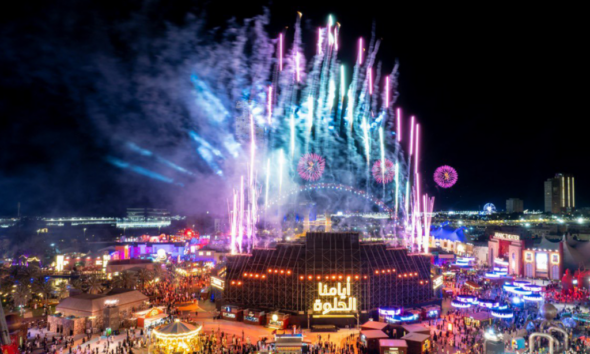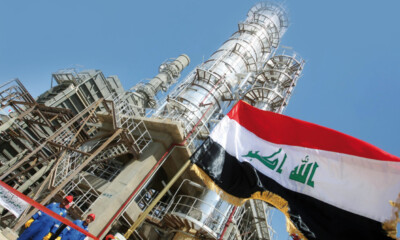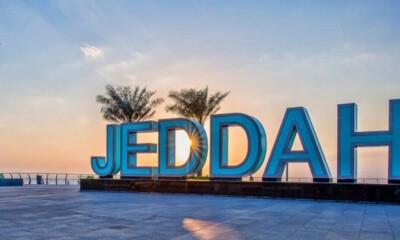Interviews
Exclusive interview: Ambassador of Iraq in London HE Dr Saleh Altamimi
Published
7 years agoon
By
Dr.Adnan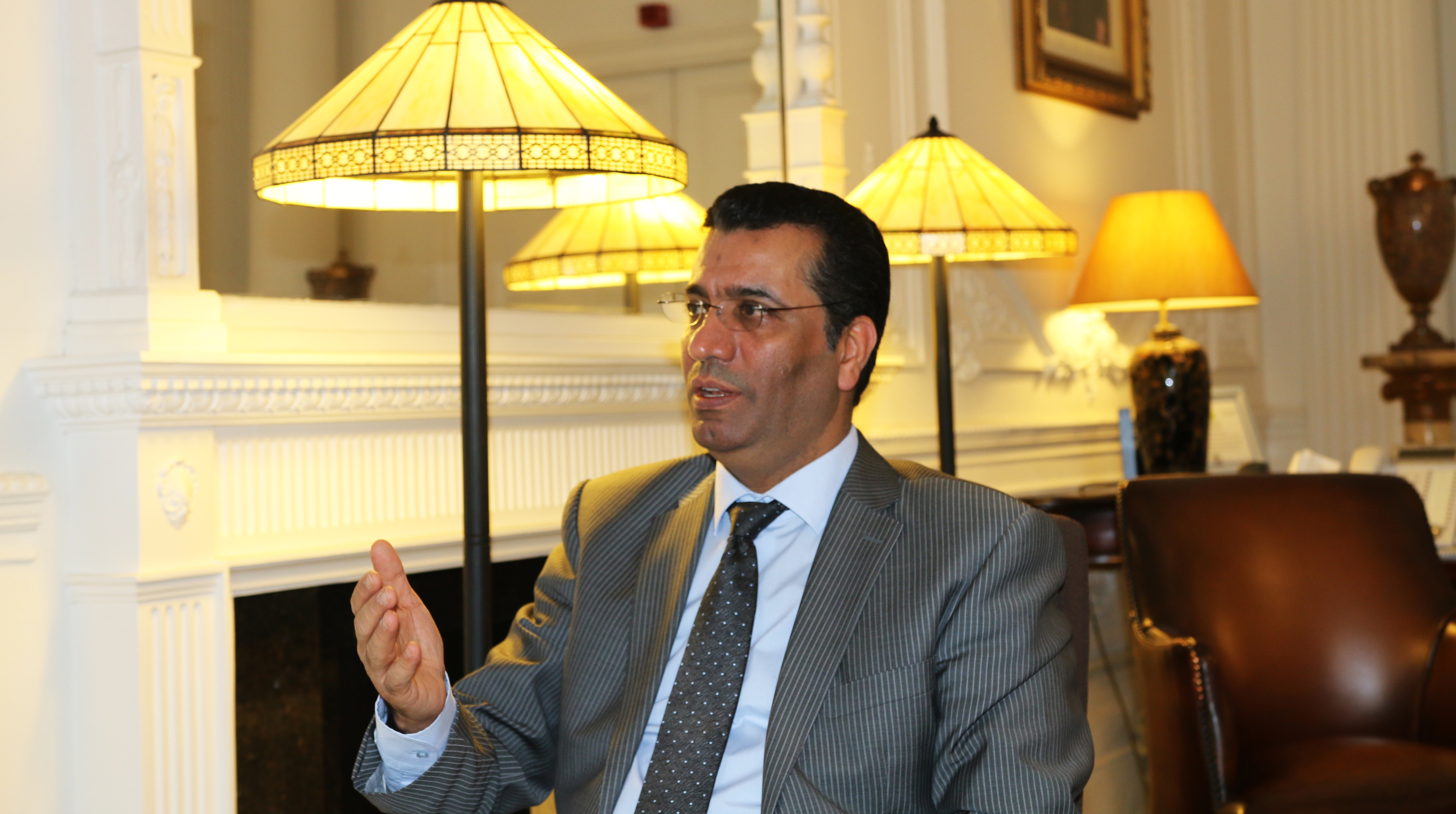
interview by: Adnan Haj Omar ( Editor in Chief)
There are difficulties facing the reconstruction process because of the difficult economic situation in Iraq and the region because of the fall in oil prices, the dependence of our budget on oil, and the fighting against ISIS, and the accompanying extraordinary spending; therefore, they need international support.
Arabisk met HE Dr Saleh Altamimi Ambassador of Iraq in London and interviewed him:
- In which stage is ISIS battle right now?
We are in the final phase of eliminating ISIS in Iraq, through the battle of Mosul, specifically the western side of Mosul, where we liberated the eastern side, and we consider this battle is the last chapter of ISIS in Iraq. Although there may be leaks in different areas and cells, the real battle is taking place in Mosul. Progress needs time, but morale is high. All components of the Iraqi people are fighting terrorism. This is positive for the Iraqi government and for the Iraqi people. Today, the Iraqi army, the Iraqi police, The People’s Mobilization Forces, the Clans, and The Peshmerga forces are fighting to terminate terrorism.
What is delaying the end of the battle is our concern for the lives of civilians, and these were the instructions of Dr Al-Abadi, the Prime Minister and Commander-in-Chief of the Armed Forces ‘the civilians before the place.’
And it must be mentioned that Mr. Al-Abadi distributed tasks between the Iraqi forces involved in liberating Mosul.
In the centre of Mosul, the Iraqi army is fighting, and the federal and local police, in addition to the sons of Mosul, while fighting outside the centre of the city, is The People’s Mobilization Forces and Peshmerga forces.
- Is there support and coordination directly with the British government in the process of restoring Mosul?
Support and coordination are through the international coalition against ISIS, which includes 69 countries, and Britain is one of the most important members of the international coalition against ISIS, led by the United States of America.
The truth is there is good support, coordination, and movement between the Iraqi and British governments, and the British government confirmed through the defence and foreign ministers it is supportive of this battle until the end.
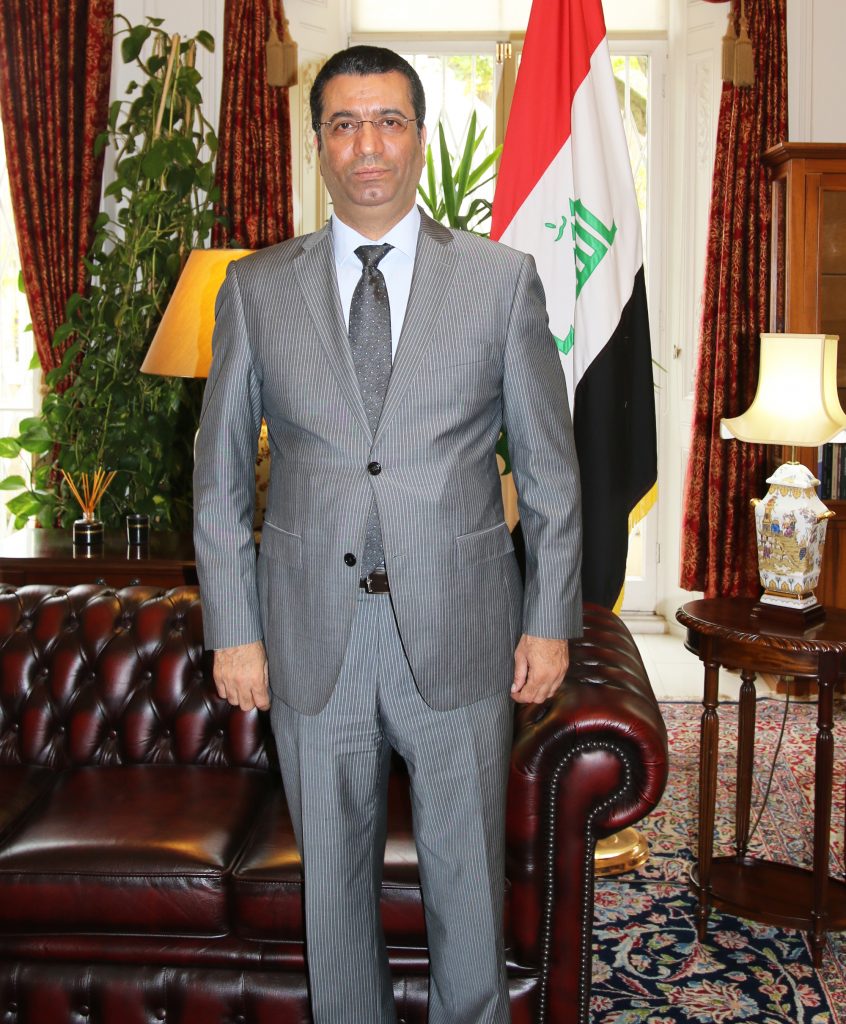
- Is there satisfaction from the Iraqi government on the size of the support provided by the International Coalition to eliminate ISIS?
The battle of Mosul was very good and escalated clearly, and we look forward to greater support, where we worry that ISIS fighters fleeing from Mosul may sneak into neighbouring areas in Iraq or even to Syria. We hope to increase airstrikes to eliminate ISIS fugitives.
- What is your role as an Iraqi embassy in London in conveying the true image of what is going on in Iraq and putting it in its proper national framework?
Let me clarify the image, because sometimes, there is a misunderstanding, and not putting things in the right framework, there is a distorted image sometimes. Our role as an Iraqi embassy is reflected through the delivery of the clear picture and the real situation through several channels, such as the media, research centres, and studies, the British Parliament, as well as the House of Lords and British Universities.
- How is the current relationship with the GCC countries, in particular, after the visit from the Saudi Foreign Minister?
The relationship is developing, and the visit of Mr. Adel Al-Jubeir, the Saudi Foreign Minister, was good, especially since it was the first in 20 years, and was met positively by the Prime Minister and the Minister of Foreign Affairs. This visit was followed by a visit by The Undersecretary of Iraqi Foreign Ministry to Saudi Arabia for technical coordination in several files.
The greatest development that took place after that visit was the meeting between the Iraqi Prime Minister and the Saudi monarch on the side-lines of the Arab summit held in Jordan. The Foreign Ministers of the two countries also met on the side-lines of the summit.
- What role can Iraq and its government play in bringing the views of the Gulf countries and Iran closer together, especially as the dispute may harm everyone in the fight against terrorism and other issues?
Iraq seeks a balanced relationship with all its neighbours: Iran, Turkey, the GCC countries, Syria, and Jordan, based on mutual interests and non-interference in internal affairs. We do not prefer a policy of axes. This makes us play a positive role in narrowing the views.
- How do you evaluate the work of the Iraqi Embassy in London, and is it open to all members of the Iraqi community?
Our policy as an Iraqi embassy is open to all. The Iraqi community is of great nature and diversity. This makes it an easy and difficult task; the basis for us is citizenship. We work to reduce problems and eliminate them, while working to provide the best service to all Iraqi citizens.
- What about the loan from the British government to Iraq for reconstruction?
The loan granted is for the reconstruction of the infrastructure, especially the water projects, which is worth £ 1 million per year. For different provinces in Iraq, it is a little delayed because it did not enter the budget of last year and is a soft loan, and those projects will be implemented by British companies.
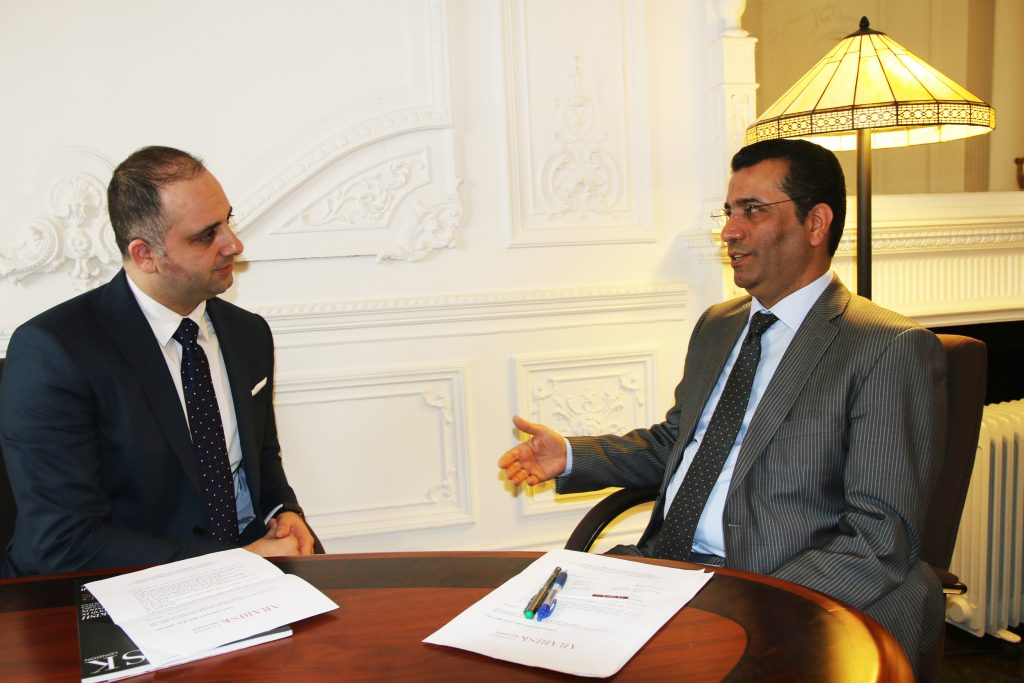
- Where is the reconstruction process today in Iraq, and what are the government’s plans?
There are difficulties facing the reconstruction process because of the difficult economic situation in Iraq and the region because of the fall in oil prices, the dependence of our budget on oil, and the fighting against ISIS, and the accompanying extraordinary spending; therefore, they need international support.
The priorities are now for the liberated areas from ISIS, where ISIS destroyed the infrastructure, so we need international support under a long-term strategic plan.
- Is there an encouraging investment climate for British investors?
The investor is always looking for two things. The first is to insure his money through legislation and international agreements that are correct and available. Iraq has joined the New York Agreement and the Washington Agreement and the modernization of the investment law and the activation of the single window system. This encourages investors to invest in Iraq. The second is the provision of security, safety, and the safety of the general climate, which is achieved in various areas in Iraq, especially the northern regions (Kurdistan) and the southern regions. The achievement of consecutive victories over ISIS in the central regions casts a shadow on the security situation, in particular, on the region for reconstruction, and to Iraq to create the right climate for investment
- Are there any efforts by you, as an embassy, to promote investment opportunities in Iraq?
We hold meetings with the companies, and we encourage and attend conferences to promote investment opportunities in Iraq. We also asked the UK to lift Iraq from the classified list as a war zone and a dangerous area to be a safe area for investment, especially since there are many safe Iraqi cities, such as Basra and the Kurdistan region.
We are also working on organising the Iraq Conference for Trade and Investment, and we will invite companies to meet directly with Iraqi officials, who will offer all investment opportunities in Iraq and in all fields.
- What are the objectives of the joint economic and trade ministerial meeting held annually between Britain and Iraq?
This meeting supports the trade exchange between Iraq and Britain and the exchange of ideas of what we can work on to develop economic relations between the two countries, although the volume of trade exchange is still weak, only 184 million pounds and must be larger. We can make progress through the conference to be held next summer.
The ministerial meeting also has political implications for what is being discussed between the officials of the two countries at those meetings.
- What steps are being taken by the Iraqi government that will enhance the confidence of the foreign investor in the Iraqi market, whether in terms of security or legislation and laws that protect investors?
The liberation of the regions gives confidence to investors by the strength of the Iraqi forces and their ability to secure the facilities and work on the side of the legislation and accession to international conventions.
- I do not know if it is too early to talk about tourism. Is there any plan from the Iraqi Tourism Authority to encourage tourism to Iraq?
Iraq has a lot of diversity, where there are archaeological and historical sites and religious tourism, and we need to enter the field of the tourism industry, because tourism is an industry and is a priority of the government after eliminating ISIS, but despite all this, religious tourism continues where large numbers come to visit Karbala, Najaf, and Kadhimiya, and Baghdad to visit Sheikh Abdul Qadir Kilani. Tourists coming to Iraq from all around the world is a source of pride for us. And in these difficult conditions, we provide services and security for them.
- The Iraqi-British Business Council stressed, at the last annual conference, the need to fight corruption to promote investment. What are the government’s efforts in this file?
One of the challenges for the government is the fight against corruption, and the government is trying on this side. Although I believe the size of corruption is exaggerated, we must work to correct the imbalances and mistakes in the fight against corruption.
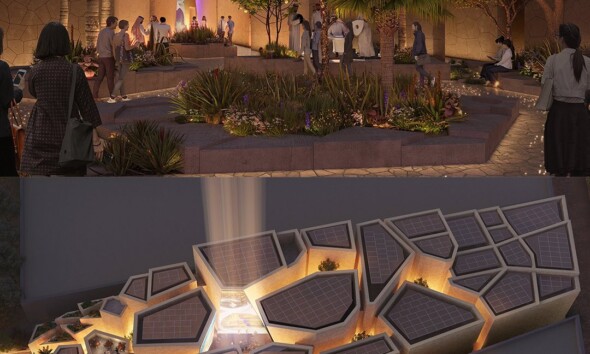
Saudi Arabia Pavilion at Expo 2025: A Blend of Tradition and Modernity
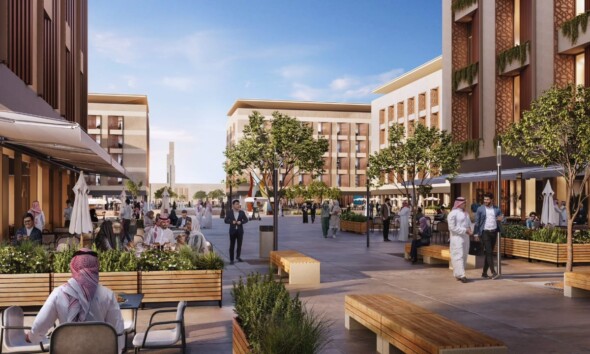
Al-Manar Project: A One-of-a-Kind Living Experience that Blends Luxury and Sustainability in Makkah Al-Mukarramah
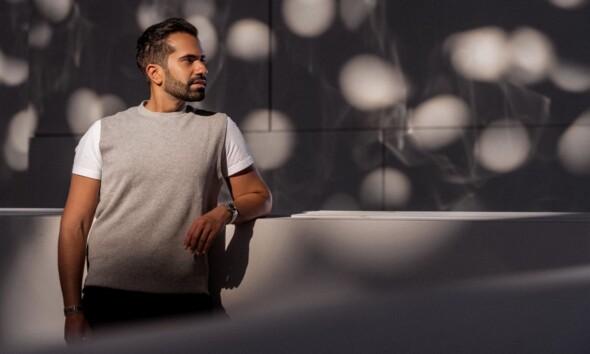
Walid Elmusrati, an Influencer and Content Creator, tells Arabisk London that the Key to Success in Influence is Tenacity and a Willingness to Take Risks
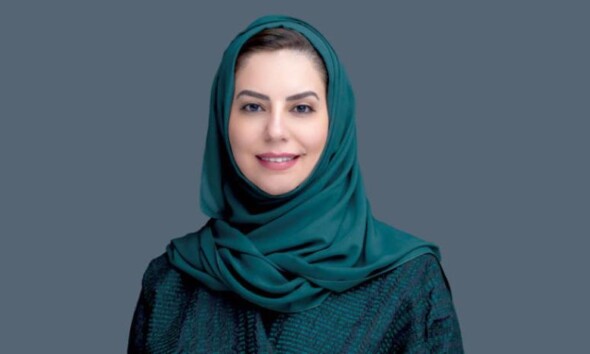
Mody Al-Khalaf is Among the 30 Most Influential Saudi Women
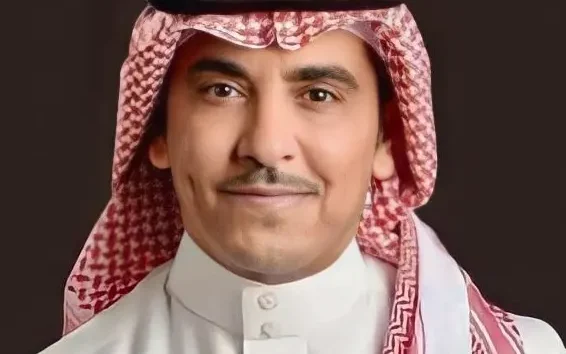
Salman Al-Dossary Leads the Saudi Ministry of Media After an Impressive Media Career
